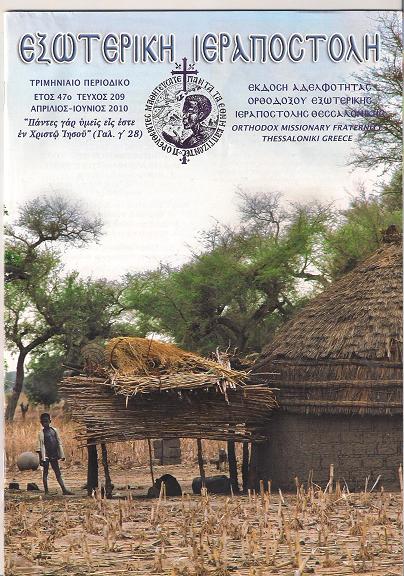For many years, my wife and I had planned to take a cruise to Alaska. As I neared retirement in March of this year, we thought that this would in fact be a perfect way to celebrate retirement: a leisurely sail up the Pacific coast through incredibly beautiful landscape, sleeping in a comfortable temperature-controlled stateroom, enjoying gourmet meals, etc. But then there is the Yiddish proverb: “Man plans and God laughs.”

Seraphima (in center) rehearsing Orthodox Hymns with choir members
An OCMC Mission Team was being recruited to teach in three Yup’ik villages in the Bethel delta area 400 miles west of Anchorage, Alaska, and my daughter Angeliki was moved to apply. The team would be transported by small fishing skiffs (there are no roads between the villages), eat native food, and be hosted in villages where sanitation amenities ranged from running hot & cold water (if the pumping station was working) to “honey buckets.” This would be a very different “Alaskan cruise” than the one I first envisioned. My wife (who has a wonderful sense of humor) encouraged me to apply. Angeliki and I were accepted – and what an experience and blessing we had!
For one thing, we came in contact with so many amazing and inspiring people. One example (of many) was our team leader, Seraphima Carl. Because she had an Orthodox first name, short surname (like many Alaskans), lived in one of the villages, and was very knowledgeable of the local culture, I just assumed she was Yup’ik herself. It turned out that her father is Mexican, and her mother is Danish. She grew up in the San Francisco Bay Area not far from where I grew up. Her father’s name was shortened when he entered the US, and she took the name Seraphima when she converted to Orthodoxy at 18. She has two Masters Degrees and is working on her PhD. She is multilingual (including Yup’ik), and she plays the piano. She teaches elementary through high school in a village of 450 people, and the kids and adults adore her! She uses the money she earns and her talents to minister to the people in need – especially children.
Life in the delta wilderness of Alaska can be very dangerous and unforgiving. The average life span is 45, and there are very few families who haven’t lost children or parents. The Napaskiak village priest, Fr. Vasili, lost his mother at a very young age to drowning. His father couldn’t support him, his younger (still nursing) brother, and the older kids, so Vasili and the younger brother were adopted by another family – a very common practice in an environment where too many parents die young.
Fr. Vasili and his wife Matushka Olga, who also happens to be the granddaughter of Blessed Matushka Olga of Alaska (http://www.stmarkoca.org/blessed_olga_bio.html), have six children – one of whom they adopted. To support his family, he hunts, fishes, and preserves like the other men. He is also the IT tech at the local school, but mostly he provides pastoral care to the schoolchildren who experience very abusive lives in alcoholic homes.
I heard stories of violence and sexual abuse that are truly horrific. I saw injuries first-hand and far too many children with Fetal Alcohol Syndrome. Fr. Vasili projects humor and a gentle loving-kindness, but you can feel the faith and steel underneath. He and Matushka Olga exemplify beauty and what a real man and woman look like as defined in the Yup’ik culture – but unfortunately far too many fall short due to alcoholism.
Fr. Nicholai (another village priest) taught me that it is very important that the mission team be willing to spend time with the people beyond the task-objectives of the mission. He told me that the Yup’ik people value “doing” over “talking.” Although the communities were sincerely grateful that we were teaching (the “talking” part), our participation in the daily life of the people (eating, celebrating, mourning, working, relaxing, etc. – the “doing” part) was as important if not more so. The experience reinforced my understanding of how vital relationship is to our salvation: we are truly human in relationship (“One Christian is no Christian”) with God and all of His creation.
Many times things did not go the way WE had planned, which gave us the opportunity to engage with prayer, flexibility, humor, and love. We were called to ask God’s grace to be present in all situations (planned and unplanned), hear, and understand what was needful – and then to do it (again, with God’s grace). When I returned from the mission, I had lunch with a friend who had just returned from a more traditional Alaskan cruise. We joked and laughed as we compared our experiences, but at the end of the day, I knew that I had experienced the most excellent Alaskan cruise.
http://ocmc.org/resources/view_article.aspx?ArticleId=985
http://www.ocmc.org/donate/donation_info.aspx





































